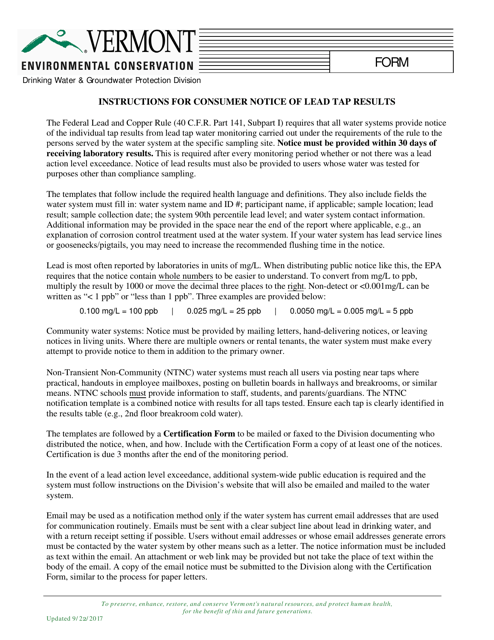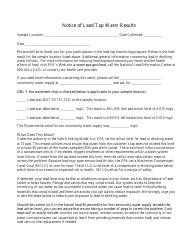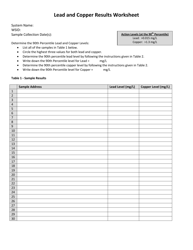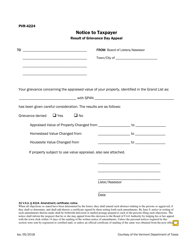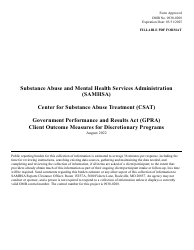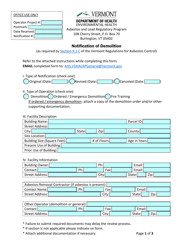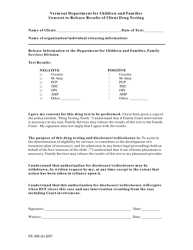This version of the form is not currently in use and is provided for reference only. Download this version of
the document
for the current year.
Consumer Notice of Lead Tap Results - Vermont
Consumer Notice of Lead Tap Results is a legal document that was released by the Vermont Department of Environmental Conservation - a government authority operating within Vermont.
FAQ
Q: What is the Consumer Notice of Lead Tap Results?
A: The Consumer Notice of Lead Tap Results is a document that provides information about the levels of lead found in tap water in Vermont.
Q: Why is lead in tap water a concern?
A: Lead in tap water can be harmful to human health, especially for children and pregnant women. It can cause developmental delays, learning disabilities, and other health effects.
Q: Who is responsible for testing tap water for lead?
A: Public water systems in Vermont are required to test tap water for lead and provide the results to consumers.
Q: What are the acceptable levels of lead in tap water?
A: The acceptable level of lead in tap water is 15 parts per billion (ppb) according to the Environmental Protection Agency (EPA).
Q: What should I do if lead levels in my tap water exceed the acceptable limit?
A: If the lead levels in your tap water exceed the acceptable limit, you should contact your water supplier for further guidance and consider taking steps to reduce your exposure to lead.
Q: How can I reduce my exposure to lead in tap water?
A: You can reduce your exposure to lead in tap water by using cold water for drinking and cooking, using a certified lead-filtering device, and flushing your taps before using water for consumption.
Q: Is it safe to drink tap water in Vermont?
A: In general, tap water in Vermont is considered safe to drink. However, it is important to be aware of lead levels and take necessary precautions to reduce exposure if needed.
Q: Are there any financial assistance programs available for reducing lead exposure?
A: Yes, there are financial assistance programs available in Vermont that can help with lead testing and remediation efforts. You can contact the Vermont Department of Health for more information.
Q: How often should tap water be tested for lead?
A: Public water systems in Vermont are required to test tap water for lead every three years. However, it is recommended to test water more frequently, especially in homes with known lead plumbing or solder.
Form Details:
- Released on September 22, 2017;
- The latest edition currently provided by the Vermont Department of Environmental Conservation;
- Ready to use and print;
- Easy to customize;
- Compatible with most PDF-viewing applications;
- Fill out the form in our online filing application.
Download a fillable version of the form by clicking the link below or browse more documents and templates provided by the Vermont Department of Environmental Conservation.
